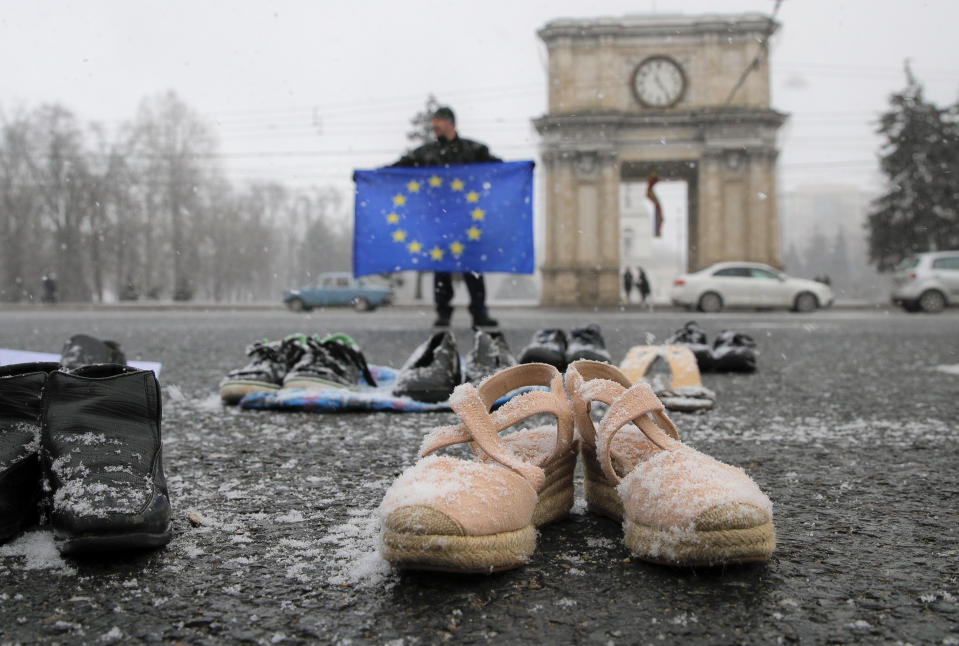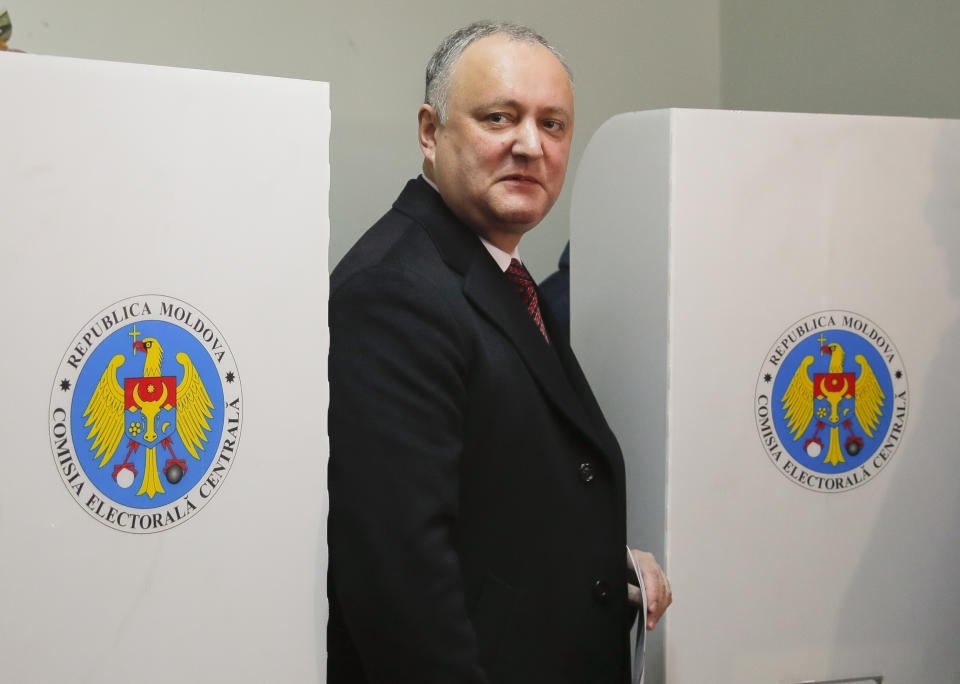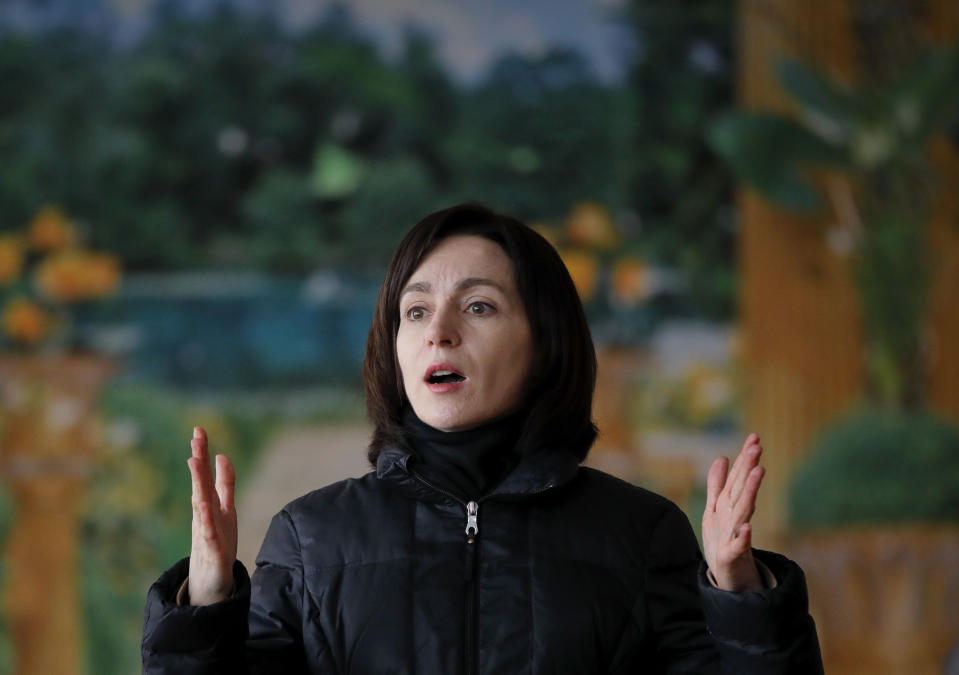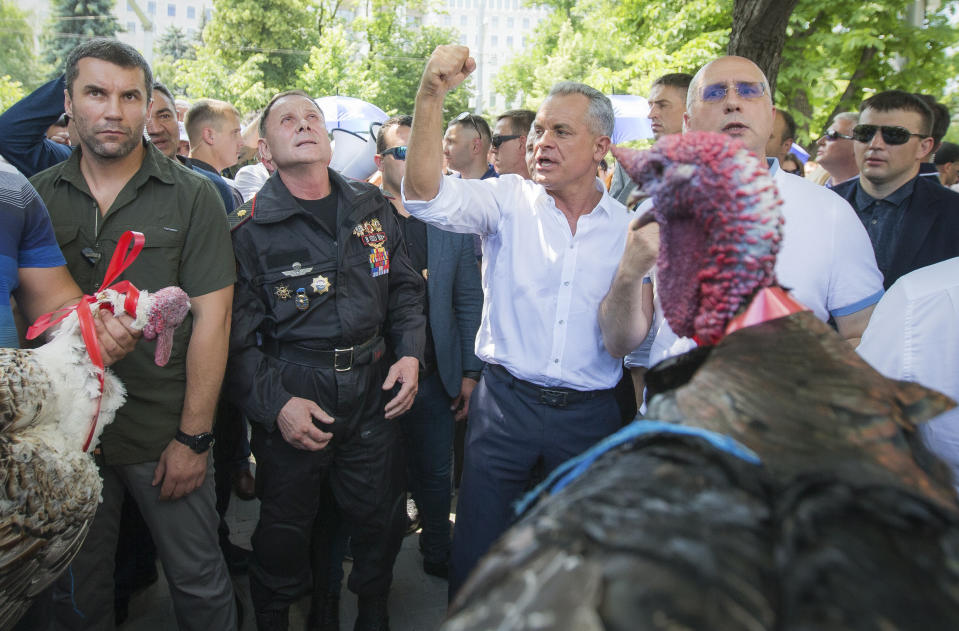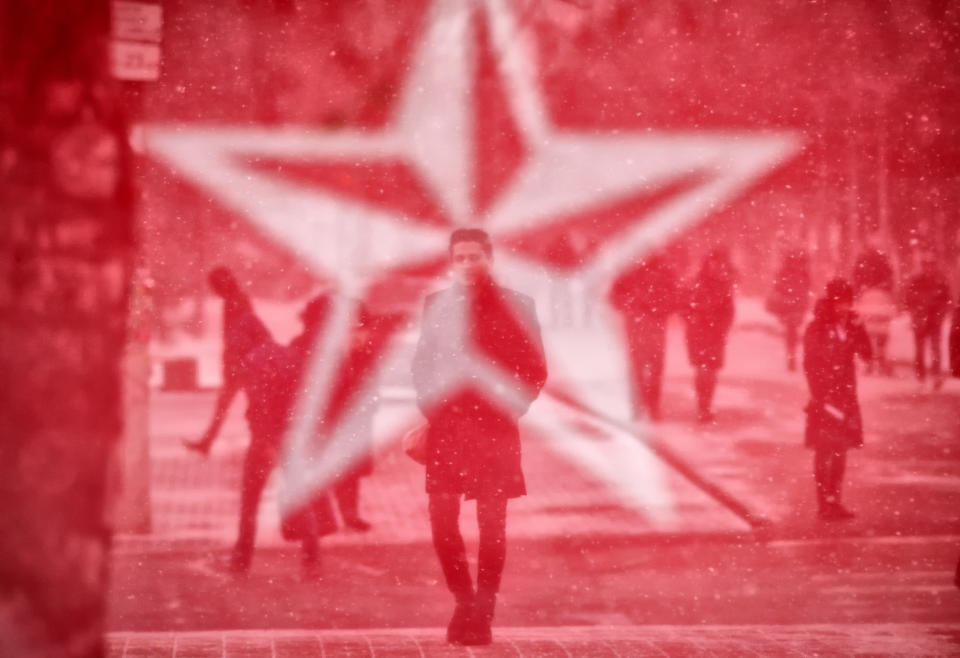European nations, Russia back new government in Moldova
CHISINAU, Moldova (AP) — Five European nations and Russia declared support Monday for elected lawmakers in Moldova, where a court-appointed interim president dissolved parliament and called a new election the day after a new coalition government won approval.
In a joint declaration, France, Germany, Poland, Sweden and the United Kingdom said the parliament picked in February had made important decisions "including the formation of a government." A majority voted in an emergency session Saturday to make pro-Europe leader Maia Sandu prime minister of a governing coalition of her ACUM alliance and the Socialists.
The previous government, led by the Democratic Party, has refused to recognize Sandu and make way for a new Cabinet. Both claimed to have the only legal mandate to govern Moldova, though the new government had strong backing from outside.
"In the current constitutional crisis, we see and support the Parliament of Moldova, as the representative of the people of Moldova, and as the best place to discuss all political issues including controversial ones," the European nations said.
Moldova's Constitutional Court disrupted the transfer of power Sunday by suspending President Igor Dodon, the Socialists former leader, for refusing to carry out an order to disband parliament himself. The court said a 90-day deadline for forming a new government elapsed Friday.
It appointed the prime minister in the existing Democratic Party-led government, Pavel Filip, to replace Dodon. Filip immediately disbanded parliament and called a snap election for September. The head of the Democratic Party, Vladimir Plahotniuc, is Moldova's current de facto leader.
Russia also backed the governing coalition formed by ACUM and the Socialists on Monday.
"We count on the earliest possible normalization of the situation in Chisinau in the interests of all Moldovan citizens and the progressive development of the country." the Russian Foreign Ministry said. "The only possible way to solve the internal political crisis in Moldova is the dialogue of all responsible political forces in accordance with generally accepted democratic principles."
NATO and the Council of Europe also have expressed concern about the political developments. Council of Europe Secretary General Thorbjorn Jagland asked the council's Venice Commission of constitutional law experts for its opinion.
"Recent decisions of the Constitutional Court are difficult to understand and seem to be arbitrary in the light of the text of the Constitution and of international rule of law standards," he said over the weekend. "In a democratic state everybody must respect the Constitution, in case of uncertainty a good objective advice is always needed."
